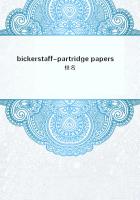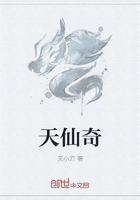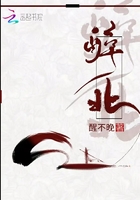But Lincoln brought to that task, aside from other uncommon qualities, the first requisite,--an intuitive comprehension of its nature. While he did not indulge in the delusion that the Union could be maintained or restored without a conflict of arms, he could indeed not foresee all the problems he would have to solve. He instinctively understood, however, by what means that conflict would have to be conducted by the government of a democracy. He knew that the impending war, whether great or small, would not be like a foreign war, exciting a united national enthusiasm, but a civil war, likely to fan to uncommon heat the animosities of party even in the localities controlled by the government; that this war would have to be carried on not by means of a ready-made machinery, ruled by an undisputed, absolute will, but by means to be furnished by the voluntary action of the people:--armies to be formed by voluntary enlistments; large sums of money to be raised by the people, through representatives, voluntarily taxing themselves; trust of extraordinary power to be voluntarily granted; and war measures, not seldom restricting the rights and liberties to which the citizen was accustomed, to be voluntarily accepted and submitted to by the people, or at least a large majority of them; and that this would have to be kept up not merely during a short period of enthusiastic excitement; but possibly through weary years of alternating success and disaster, hope and despondency. He knew that in order to steer this government by public opinion successfully through all the confusion created by the prejudices and doubts and differences of sentiment distracting the popular mind, and so to propitiate, inspire, mould, organize, unite, and guide the popular will that it might give forth all the means required for the performance of his great task, he would have to take into account all the influences strongly affecting the current of popular thought and feeling, and to direct while appearing to obey.
This was the kind of leadership he intuitively conceived to be needed when a free people were to be led forward en masse to overcome a great common danger under circumstances of appalling difficulty, the leadership which does not dash ahead with brilliant daring, no matter who follows, but which is intent upon rallying all the available forces, gathering in the stragglers, closing up the column, so that the front may advance well supported. For this leadership Abraham Lincoln was admirably fitted, better than any other American statesman of his day; for he understood the plain people, with all their loves and hates, their prejudices and their noble impulses, their weaknesses and their strength, as he understood himself, and his sympathetic nature was apt to draw their sympathy to him.
His inaugural address foreshadowed his official course in characteristic manner. Although yielding nothing in point of principle, it was by no means a flaming antislavery manifesto, such as would have pleased the more ardent Republicans. It was rather the entreaty of a sorrowing father speaking to his wayward children. In the kindliest language he pointed out to the secessionists how ill advised their attempt at disunion was, and why, for their own sakes, they should desist. Almost plaintively, he told them that, while it was not their duty to destroy the Union, it was his sworn duty to preserve it; that the least he could do, under the obligations of his oath, was to possess and hold the property of the United States; that he hoped to do this peaceably; that he abhorred war for any purpose, and that they would have none unless they themselves were the aggressors. It was a masterpiece of persuasiveness, and while Lincoln had accepted many valuable amendments suggested by Seward, it was essentially his own. Probably Lincoln himself did not expect his inaugural address to have any effect upon the secessionists, for he must have known them to be resolved upon disunion at any cost. But it was an appeal to the wavering minds in the North, and upon them it made a profound impression. Every candid man, however timid and halting, had to admit that the President was bound by his oath to do his duty; that under that oath he could do no less than he said he would do; that if the secessionists resisted such an appeal as the President had made, they were bent upon mischief, and that the government must be supported against them. The partisan sympathy with the Southern insurrection which still existed in the North did indeed not disappear, but it diminished perceptibly under the influence of such reasoning. Those who still resisted it did so at the risk of appearing unpatriotic.














